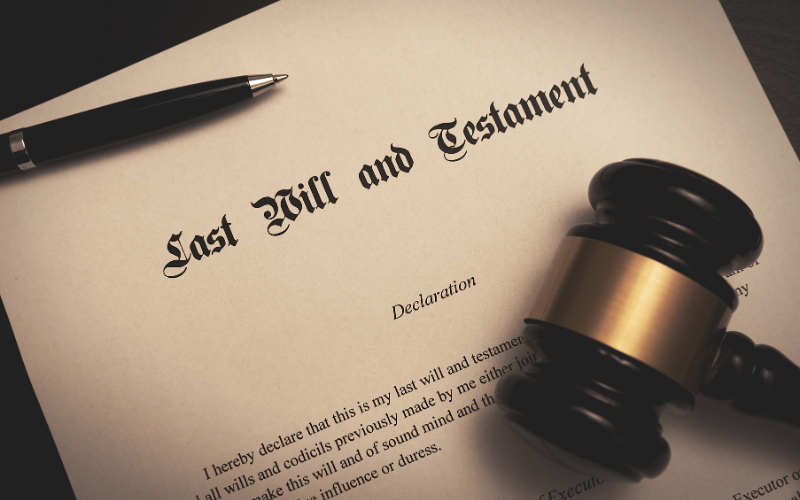
Creating a Will in British Columbia: A Comprehensive Guide
Introduction
Creating a will is a crucial step in ensuring that your assets are distributed according to your wishes after your death. In British Columbia (BC), a well-crafted will can prevent legal disputes, provide clarity for your beneficiaries, and ensure that your estate is handled efficiently. This white paper provides a detailed guide on how to create a will in BC, outlining legal requirements, essential components, and best practices.
Legal Requirements for a Valid Will in BC
To ensure that a will is legally valid in British Columbia, it must meet the following criteria:
1. Age and Capacity:
• The testator (person creating the will) must be at least 16 years old.
• The testator must have the mental capacity to understand the nature and effect of the will.
2. Written Document:
• The will must be in writing. Oral wills are not recognized in BC.
3. Signature and Witnesses:
• The will must be signed by the testator at the end of the document.
•
The signature must be made or acknowledged in the presence of two witnesses who are both present at the same time.
• The witnesses must also sign the will in the presence of the testator.
4. Beneficiary Restrictions:
• Beneficiaries should not be witnesses to the will, as this could invalidate their inheritance.
Steps to Create a Will in British Columbia
1. Inventory Your Assets and Liabilities
Begin by making a comprehensive list of your assets and liabilities. This should include:
•Real estate properties
•Bank accounts
•Investments
•Personal belongings (jewelry, vehicles, etc.)
•Debts and liabilities
2. Choose Your Beneficiaries
Decide who will receive your assets. Beneficiaries can include:
•Family members
•Friends
•Charities
•Organizations
3. Appoint an Executor
An executor is responsible for administering your estate. Choose someone you trust who is capable of handling financial and legal responsibilities. It is advisable to appoint an alternate executor in case your first choice is unable or unwilling to act.
4. Consider Guardianship
If you have minor children, appoint a guardian to care for them. This is a critical decision and should be made with the child’s best interests in mind.
5. Draft the Will
You can draft your will using:
•A Lawyer: Hiring an estate lawyer ensures that your will is legally sound and covers all necessary details.
•Online Services: There are various online platforms that provide will templates and step-by-step guides.
•DIY Kits: Will kits are available for purchase and can be used to create a basic will.
6. Sign the Will
Follow the legal requirements for signing the will:
•Sign the will at the end of the document.
•Have two witnesses (who are not beneficiaries) present at the same time.
•The witnesses must sign the will in your presence.
7. Store the Will Safely
Store your will in a safe place and inform your executor and trusted family members of its location. Options for storage include:
•A safety deposit box
•A fireproof home safe
•With your lawyer
8. Review and Update Regularly
Review your will regularly, especially after major life events such as marriage, divorce, the birth of a child, or significant changes in your financial situation. Ensure that your will remains up-to-date and reflects your current wishes.
Special Considerations
Holograph Wills:
Holograph wills, written entirely in the testator’s handwriting and not witnessed, are not recognized as valid in British Columbia. Ensure your will meets the formal requirements.
Digital Assets
Include instructions for your digital assets, such as online accounts, digital currencies, and social media profiles. This can prevent complications in accessing and managing these assets after your death.
Disinheritance
If you plan to disinherit a close family member (such as a spouse or child), consult with a lawyer. BC’s Wills, Estates and Succession Act (WESA) allows for the possibility of contested wills, and disinheritance can lead to legal challenges.
Conclusion
Creating a will in British Columbia is a vital step in estate planning. By following the legal requirements and carefully considering your wishes for asset distribution, guardianship, and executor appointment, you can ensure that your estate is managed according to your intentions. Regularly reviewing and updating your will helps to keep it current and effective. Seeking professional advice from a lawyer can provide additional peace of mind and ensure that your will complies with BC laws.
By taking these steps, you protect your loved ones from unnecessary legal complications and provide clear guidance on your final wishes.
*Anyone considering creating a Will should seek independent legal advice. This information should be considered a starting point to curiosity on the topic and in no way should be relied on for making your decisions.